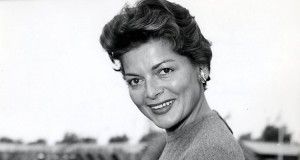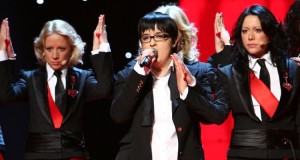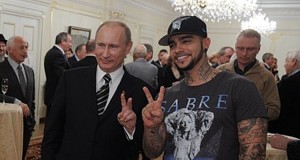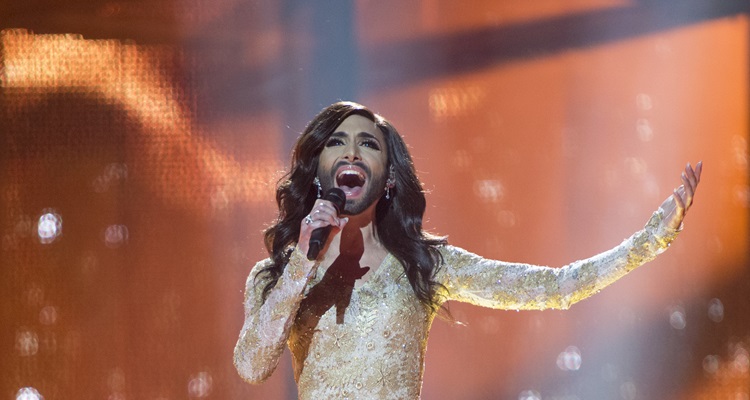I’m a bit of a fan of the Eurovision Song Contest. Not because I know anything about music (I’d stand a better chance explaining quantum physics to a three-year old, than to take part in an intellectual conversation about music) but because it’s a celebration of the things all Europeans (or indeed all of mankind) have in common. Plus, it’s one hell of a show!
For an outsider, it might be strange to think that within such a small geographical place as Europe, there are huge gaps between nations when it comes to culture, economy and the general take on life. Add to that a long history of wars between neighbors, moving borders, political separation and racism, and you get a ticking time-bomb. Europe is, in that sense, not “A” place, but more like a boiling pot, or a junction of nations.

In 1956, when Europe was being rebuilt after the second World War, the European Broadcasting Union had the first Eurovision Song Contest, to bring together the membership countries, with a light entertainment programme. Nations that had once fought each other, now had the chance to compete in a friendly manner, encouraging tolerance and friendship.
Since then, a lot has changed. The songs, naturally, and the stage performances are quite different, but Europe itself has also changed. Countries have been split up to new ones, in devastating wars that have claimed the lives of millions. And as some countries are no more, new countries have declared independence and some of them have gone on to take part in Eurovision.
So, what is so great about the competition? In my opinion, it stands for the union of nations (even if just for a few days), for the joy of life and celebration of diversity … but for a lot of people it’s probably just one more competition that allows them to root for their country.
It is no secret that in the recent years, Eurovision has gained its most loyal fan-base within the queer community. A three-night event with glamour, lights, long dresses, dancing, drama and constant singing … who didn’t see that coming?

And for the last years, these fans have gotten more “for their money”, since openly queer performers, such as the Icelandic Paul Oscar (1997), the Israeli (don’t ask, I have no idea why they take part) Dana International (1998 and 2011) and the Serbian Marija Šerifović (2007) have taken to the stage, the latter two even taking home “the gold”.
It is my understanding that even though most Icelanders follow the competition closely, in many countries it goes largely unnoticed these days, except within the queer community.
This year then, it was perhaps not a surprise that Austria sent the drag-queen Conchita Wurst to Eurovision. What better, to get the queer vote, than a gorgeous queen?
Wurst, who went on to take first place with the song “Rise of the Phoenix”, did confuse some viewers though, because of her trademark full beard. It is supposed to represent the message that it shouldn’t matter where we are from, or what we look like, we are all equal.

Tom Neuwirth, literaly the man behind Conchita Wurst, created her as a statement for tolerance and acceptance after being discriminated against in his teens. “It’s not about appearances; it’s about the human being,” it says on Wurst‘s website. “Everybody should live their lives however they want, as long as nobody else gets hurt or is restricted in their own way of life.”
And what a beautiful message that is. It rang true for Eurovision fans, and even though Wurst’s song and performance was up to par, it is generally believed that beyond that, tolerance won the competition this year.
Alas, not everyone thinks Wurst, or her message, has a place in today’s Europe. While many of my Facebook-friends told stories of how their children asked “why that lady had a beard”, and accepted the explanation that we were all different in one way or another, there are also those who think Wurst will singlehandedly degenerate Europe to the point we are lost.

At this time, I feel it’s right to clear things up. As far as I can tell, Conchita is only a drag-persona, a sort of an alter-ego for Tom. If I’m right, it means that Tom is not a hermaphrodite, not a transwoman and not “half-this, half-that”. He‘s simply a young talented man, who performs in drag. Correct etiquette is to speak of Tom as “him” and of Conchita as “her”. It‘s really not that hard.
Since I didn’t know much about Tom or Conchita, I’ve been reading up on them and watching old interviews with Conchita. And what a delightful persona. She’s funny, she’s warm and she’s just about the right amount serious about herself and her career.
Why, then, would the comments to her videos be: “What kind of sick joke is this? That thing is truly offensive to common decency”, “Disturbing to know that this was once a normal man…” and, simply: “Go to hell.”
Maybe it’s because her message is a much-needed one? Maybe it’s because that outside the Eurovision fan-base, Europe is still recovering from the ideology of mid-20th century? Maybe, it’s because that even in the age of information and communication, ignorance and intolerance are still alive and kicking?
For anyone who followed the competition, the reactions to the Russian act were perhaps a bit of the same medicine for a different disease. The singers, young and talented twins, were booed at, and in fact whenever Russia was mentioned during the scoring, the audience booed.

It is generally believed that this reaction is to Russian head of state Putins’ anti-queer policy, rather than the recent invasion into Ukraine, a fellow European country once a part of the Soviet Union.
In a press conference after she won the competition, Wurst got the message out to Putin that “we are unstoppable”. It is also worth mentioning that during scoring, her song got five points from Russia. (Eurovision scoring is a topic of its own, but five points means Russia voted Austria in sixth place, with scoring being done 50% by televote and 50% via „professional“ jury).
Russian politicians and clerks have since opposed to the idea of a drag-queen victory, and gone so far as to encourage their countrymen to shave their beards off, so they won’t look like Conchita. To them, Wurst is the embodiment of evil. Probably because she represents, more than anything else, the freedom of choice.
To me, it’s utterly amazing that a single drag-queen (as wonderful as she may be) might actually have a greater impact on Russian politics than “all” (ahem) of the protest against Russia’s anti-gay laws, in relations to the recent Olympic Games.
To use a phrase I’m not too fond of, “one guy in a dress” might actually be the catalyst that moves Europe one step closer together. One step away from prejudice. And I’d even go so far as to say that is the very reason she won the Euriovison song contest – so that the queer minority of Europe, heck – ALL minorities of Europe, would gain a strong voice against the prejudice that has manifested itself in today’s Russian politics, but are also thriving in smaller quantities all over Europe.
And that is exactly why we need Conchita Wurst, and why she needs all of us to back her up. Even those of us who can’t sing to save their li


